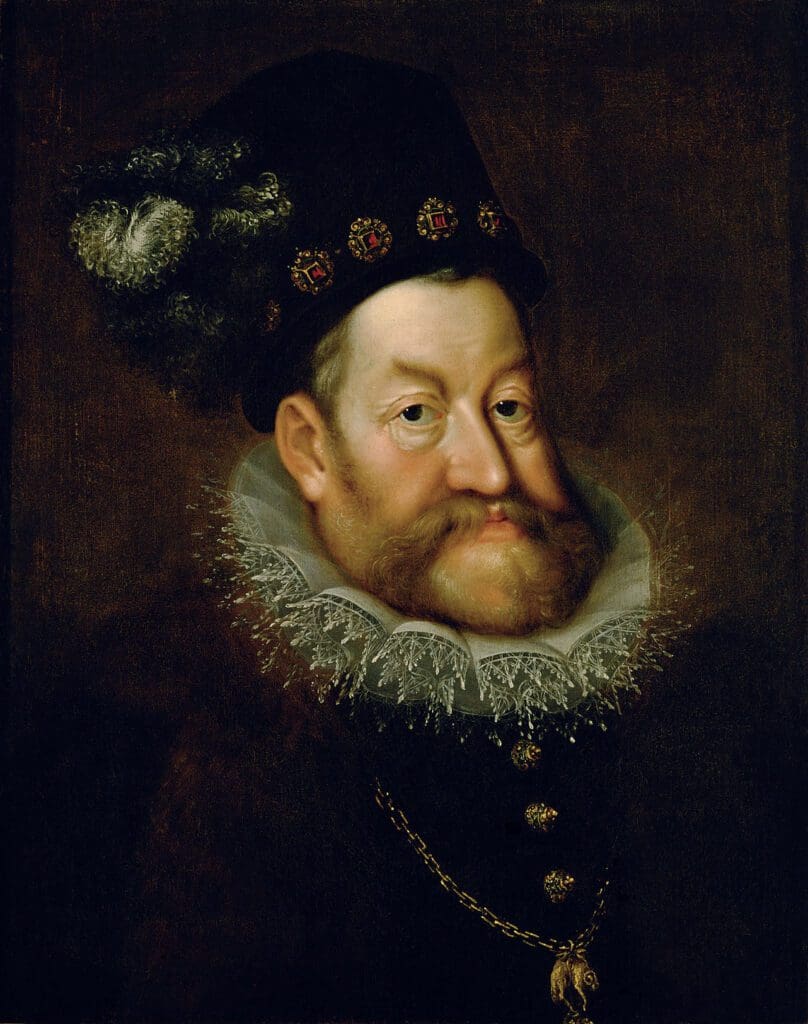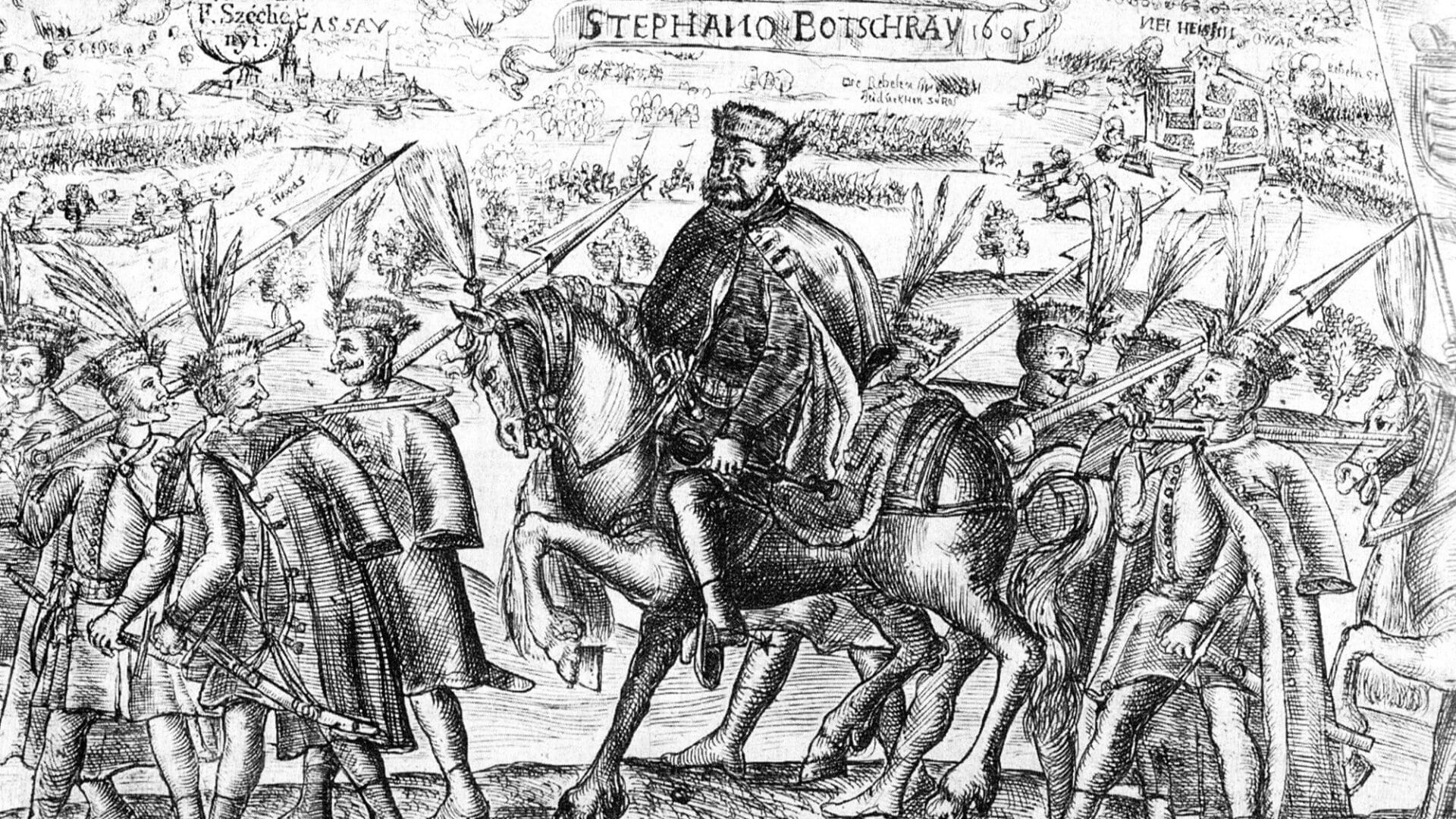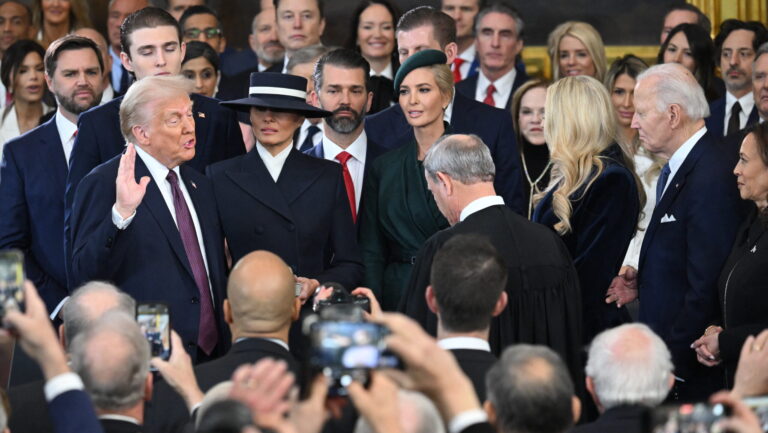An excerpt from Prince of Transylvania and Hungary Stephen Bocskai’s last will dated 17 December 1606 runs as follows: ‘As long as the Hungarian Crown is with a nation mightier than us, with the German, and the Hungarian Kingdom is also dependent on the Germans, it will be necessary and expedient to have a Hungarian prince in Transylvania, for he shall provide protection and be of use to them.’
The Treaty of Vienna, ending the Bocskai uprising, known in Hungary as Bocskai’s War of Independence, was signed 417 years ago today, on 23 June 1606. The agreement, which was concluded between the Archduke of Austria Matthias and Prince of Transylvania Stephen Bocskai on behalf of Rudolf II, Holy Roman Emperor and King of Hungary as Rudolf I, ensured (at least in principle) the sovereignty of Transylvania against the Habsburgs in the long term and guaranteed the free religious practice of Protestants. In addition, it also forced Rudolf to recognise the political rights of the Hungarian estates of the realm, i.e. broad social orders of the hierarchically conceived society recognised in the Middle Ages and the Early Modern period in Christian Europe.
But what is worth knowing about the uprising itself and its background?
From the very beginning, King Rudolf I strove to break the Hungarian estates of the realm in order to rule the country in an absolute manner. Consequently, he did not allow anyone to hold the title of Palatine, elected by and considered to be the head of an estate. Instead, so-called palatine deputies from Vienna were appointed, but from 1562 to 1608, no one could occupy this position either. The ruler was also a devout supporter of the Counter-Reformation, which created a conflict between the king and the Hungarian aristocracy, as a significant part of this social stratum (for instance, Hungarian noble families such as the Báthorys, the Nádasdys, and the Perényis) belonged to some Protestant denomination.

Since Rudolf’s treasury was emptied during the Fifteen Years’ War (1591/1593–1606), he tried to solve his financial problems by attempting to dispossess protestant Hungarian aristocrats of their property with treason trials, which involved execution and complete confiscation of property. As a result of all these injustices, the protracted war, and the destruction of the imperial troops, an uprising led by Stephen Bocskai broke out, the purpose of which was to restore the rights of Hungarian estates and remedy the grievances.
When the Habsburg court wanted to arrest Bocskai on charges of high treason, he confronted the imperial troops with his unpaid Heyduck (hajdú in Hungarian) soldiers who had previously sided with him. In October 1604, leading his troops, he marched into Debrecen and Várad (Nagyvárad, today Oradea in Romania), but also won a victory at Tokaj. He entered Kassa (today, Košice in Slovakia) on 11 November 1604, and after that, Eastern Hungary also came under Bocskai’s authority. The leader of the war of independence issued a proclamation to the nobility on 12 November, urging them to join the uprising. Thus, the war of independence widened: desperate serfs, townspeople tormented by foreign mercenaries and the violent Counter-Reformation, and commoners also joined the revolt.
On 17 April 1605, Stephen Bocskai was elected Prince of Hungary and Transylvania at the Szerencs Diet, and by the end of the year, Transylvania and the territory of the Kingdom of Hungary (the part of Hungary not occupied by the Turks) fell into the hands of the insurgents, too. Thus, Rudolf was finally forced to compromise, but Bocskai also thought it as better to seek an agreement with the Emperor, because
breaking with the Habsburgs would have meant a complete commitment to the Turks.
The Treaty of Vienna concluded in 1606 was a solution to various grievances, but it is also important to know that in the meantime, Transylvania, which flourished under the rule of Stephen Báthory, Voivode of Transylvania, suffered significant damage. In place of the decreasing Hungarian population, Wallachians (Romanians) immigrated, which played a major role in Hungarians becoming a minority in Transylvania by the 18th century.
* The quote is from a Kuruc song of the Rákóczi War of Independence, which post-dates the Bocskai revolt. However, the notion that after the Battle of Mohács Hungarians were forced to fight simultaneously against two ‘pagan’ invaders, the Turks and the Austrians, is an overarching trope in Hungarian historiography.
Related articles:







